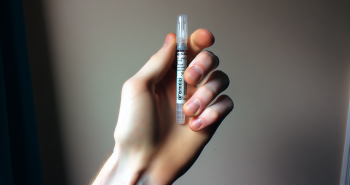Ozempic Lawsuits for Drug Test Complications

Does Ozempic show up on a drug test and cause unexpected problems? Some users have faced complications that may make them eligible for legal claims. If you experienced health issues or testing mishaps after using Ozempic, you could be entitled to compensation through a lawsuit.
Drug Test Issues from Ozempic Use
So, if you’re wondering if Ozempic pops up on blood tests, there’s a slim chance it’ll be there during routine screenings. The typical drug tests are looking for stuff like illegal drugs, not prescription ones like Ozempic. Still, if someone’s really digging into the nitty-gritty with a specific test, they might find semaglutide or its remnants in your system. It’s always a good idea to let the folks drawing your blood or the docs know about any meds you’re taking. It just helps clear things up when they’re reading those numbers.
Legal Risks Linked to Ozempic
Ozempic is mainly seen as this special kind of drug, used specifically for keeping type 2 diabetes in check. It’s made up of semaglutide, plus some other substances like disodium phosphate dihydrate and propylene glycol, blended in with phenol, water, and just a pinch of stuff like hydrochloric acid or sodium bicarb to get the mix right.
Ozempic showing up in a test can sometimes throw a wrench in the works if it isn’t properly talked about beforehand. Being upfront with your docs and testing centers ensures everything’s above board and that awkward misreads don’t take place.
By keeping the lines of communication open about the meds you’re on, you can usually breeze through the testing process without a hitch and sidestep any Ozempic-related query. If there’s ever a hiccup about Ozempic showing up, chatting with your healthcare pro can help iron out any wrinkles and shed some light on getting through tests with your peace of mind intact.
Table of Contents:
Will Ozempic Show Up in a Blood Test?
Thinking about whether Ozempic might pop up in blood tests or routine drug screens? Let’s break it down. Ozempic’s interaction with your body plays a major role in whether it’ll be detected in these scenarios.
Filing a Lawsuit Over Testing Complications
Ozempic (that’s semaglutide if we’re getting technical) has the FDA’s blessing for helping out with type 2 diabetes and obesity. It’s pretty good at weight loss; folks often see better results than with some other meds. But when doctors draw blood, they’re usually on the lookout for things like glucose or lipid levels to manage your diabetes. Ozempic isn’t the main attraction here. That said, it contains a preservative called phenol, which might just make an appearance in the results.
Ozempic-Related Legal Claims
Your everyday drug test isn’t looking for Ozempic. Those tests focus on stuff like illegal substances or drugs prone to misuse. Meds prescribed by your doctor, like Ozempic, usually aren’t on their radar.
But if you’re curious or worried about Ozempic showing up, talk to your lab or healthcare provider. Let them know what you’re taking so they can interpret any oddball results correctly.
In the end, Ozempic doesn’t set off alarms in typical blood work or drug tests. If there are any worries—be it the preservatives or unique testing protocols—chat openly with your healthcare provider. They’ll help sort through any testing concerns linked to your meds.
Documenting Problems for Ozempic Lawsuits
When we think about Ozempic and how it relates to drug tests, a few questions pop up around its classification, why it shows up in blood work, and if it might get mixed up in drug testing results.
Evidence Needed for Ozempic Claims
Ozempic falls under the category of specialty drugs, mainly because of its one-of-a-kind makeup and specific uses. Inside Ozempic, you’ve got phenol doing its thing as a preservative—keeping all the nasties like bacteria and germs at bay when using the medication pen (GoodRx). Because of phenol, Ozempic needs a bit of extra care and handling, marking it as a specialty drug that requires attention.
Reporting Side Effects for Legal Action
The active player in Ozempic, semaglutide, is a peptide mimicking the effects of GLP-1, which helps regulate digestion and blood sugar levels (GoodRx). This action means that parts of Ozempic can pop up in blood tests. As it zeroes in on blood sugar control through GLP-1 receptor action, it’s not unusual to spot it in lab tests, pointing to its presence in the body.
Drug Testing Mishaps & Legal Eligibility
Even though Ozempic is helpful, using it could lead to some mix-ups in drug tests. People might face allergic reactions to its ingredients, with severe cases like anaphylaxis as potential risks (GoodRx). This highlights why it’s essential to go through one’s medical history with a fine-tooth comb before jumping on the Ozempic bandwagon, ensuring all boxes are checked to avoid adverse reactions and any mix-ups in test outcomes.
Getting your head around how Ozempic interacts with drug tests means knowing its status as a specialty drug, the science behind its presence in bodily tests, and why a cautious approach is key to preventing misunderstandings. By keeping these points in mind, you can make more informed choices about using Ozempic and have a clearer picture of its possible impact on drug test results.
How Can You Get Money by Suing Over Ozempic?
If you’ve run into some gnarly side effects from using Ozempic and think you deserve some cash back or at least some justice, slapping a lawsuit on the drug’s maker might be your route. It’s key to know what you’re doing to get what’s yours after what that pill put you through.
Here’s your roadmap when filing a lawsuit against Ozempic:
- Chat With a Lawyer: Step uno, find a slick-talking attorney who knows their stuff when it comes to drug side effects and lawsuits. You’ll want someone with the brains and brawn to back you up all through this mess.
- Check Out Your Case: The attorney will dig through your deets—like what terrible side effects you’re wrestling with, your doctor notes, and what Ozempic did to your health. This is like a test drive to see if your case has wheels and if they’ll get paid.
- Suit Up and File: If your attorney gives you the nod, they’ll officially file your beef against Ozempic. They’ll lay out all the bad stuff you went through and ask for the dough you’re owed.
- Into the Courtroom We Go: After the paperwork’s in order, it’s like a marathon that involves sleuthing, collecting evidence, questioning folks, and maybe a few flashy courtroom moments. Your lawyer’s there to argue your corner and pile up the proof you need.
- Deal or No Deal: Often, drug companies don’t fancy a long legal battle or watching themselves get roasted publicly, so they might offer a fat check to settle quietly. If you do a deal, it means cash for you without dragging through a trial. But if no one budges, then you and your team laces up for a court fight.
- Dollar Signs: If you win, you could be in line for a bunch of types of moolah—think doctor bills, wage loss, feeling crappy every day, and other expenses hitting your wallet due to Ozempic’s unwelcome surprises.
Remember, going after a pharma giant isn’t kids’ play, and it’s a maze only a lawyer with a map can get you through. With a sharp attorney by your side, you’ve got the tools and the smarts to wrangle the cash you’re owed.
Want more dirt on what Ozempic could potentially put you through? Peek at the details in our post on Ozempic side effects to keep yourself savvy and legally armed.










